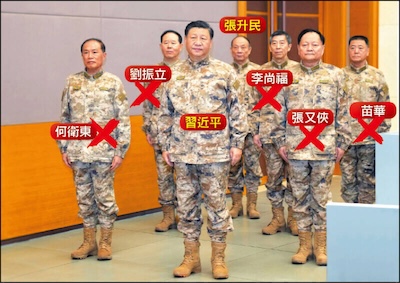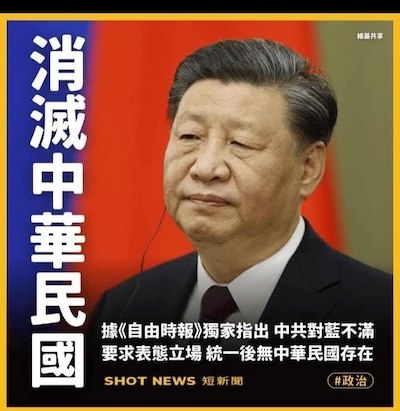Ko Wen-je, the former Taipei mayor and chairman of the Taiwan People’s Party (TPP), has long cultivated an image of blunt honesty and pragmatic reform. Yet recent events surrounding his decision to delay bail, followed by his eventual acceptance of bail terms, have raised serious questions about whether his actions match his rhetoric. Critics accuse him of being hypocritical—at first presenting himself as a man unwilling to compromise, only to later concede and pay bail. This perceived inconsistency places Ko at the center of a political storm, where he must simultaneously manage his legal troubles, his relationship with Huang Kuo-chang, and the internal contest for party leadership. At stake is not only Ko’s own political credibility but also the loyalty of his grassroots supporters, often called “Little Grass.”
The Symbolism of Refusing Bail
Initially, Ko’s refusal to post bail was interpreted by many as a symbolic gesture. By declining to comply, he projected an image of defiance, suggesting that he was being unfairly targeted and that standing firm was a matter of principle. In Taiwanese political culture, such defiance resonates with citizens who are skeptical of judicial impartiality. Refusing bail allowed Ko to frame himself as a victim of political persecution rather than an accused politician.
Yet, symbolism can only go so far. As legal realities caught up with him, Ko eventually accepted bail. This shift gave his opponents ammunition: how could he justify both defiance and compliance without appearing opportunistic? His detractors argued that his stance was never truly about principle but about political theater. For many observers, this inconsistency revealed a gap between Ko’s words and actions—a dangerous liability for a leader who has built his reputation on being “different” from traditional politicians.
The Ko–Huang Axis
At the same time, Ko must contend with his alliance—and rivalry—with Huang Kuo-chang. Huang, a former legislator and prominent figure of the New Power Party, joined forces with Ko in the hope of broadening the TPP’s appeal. On paper, the two share a reformist outlook and a reputation for challenging the political establishment. However, both are strong personalities with distinct ambitions.
Huang is known for his legal expertise and his sharp attacks on corruption, while Ko thrives on populist charisma and his image as an outsider. Their partnership is fragile, as it balances between complementarity and competition. Huang’s rise within the TPP structure threatens Ko’s dominance, especially at a time when Ko’s legal troubles weaken his authority. For Ko, maintaining leadership requires not only defending himself legally but also managing Huang’s growing influence. If Ko appears indecisive or inconsistent, Huang could emerge as the de facto leader—something Ko is unlikely to accept quietly.
Party Leadership Struggles
Beyond the personal dynamics, the broader struggle for party leadership looms large. The TPP is still a relatively young party, lacking the deep institutional roots of the Kuomintang (KMT) or the Democratic Progressive Party (DPP). Its strength comes largely from Ko’s personal brand and the “Little Grass” supporters who admire his plainspoken style. However, as the party expands, internal factions inevitably form.
Some members prioritize pragmatic governance and are open to coalition-building with either major party, while others insist that the TPP must remain a truly independent “third force.” Leadership contests within the TPP are therefore not merely about personalities but about direction: Will the party revolve solely around Ko’s charisma, or will it evolve into an institutionalized organization with multiple power centers?
The “Little Grass” Question
This brings us to the crucial issue: will the “Little Grass” continue to follow Ko? These supporters, often younger voters disillusioned with both the DPP and the KMT, rallied to Ko because he seemed authentic, unpolished, and willing to speak truth to power. They valued his outsider image and his promise to reject the hypocrisy of traditional politics.
But authenticity is fragile. If Ko is seen as playing the same political games as his rivals—pretending to stand firm only to later compromise—his appeal may erode. Already, some “Little Grass” supporters express frustration that Ko’s actions no longer align with his rhetoric. They wonder if he has become just another politician, indistinguishable from the ones he once mocked.
At the same time, loyalty in politics is often tied to identity rather than policy. Many “Little Grass” remain attached to Ko because he represents their rejection of the establishment. Even if disappointed, they may not easily shift allegiance to another leader, particularly since no alternative yet offers the same mix of outsider appeal and organizational visibility. Huang Kuo-chang, while respected, lacks Ko’s populist touch. For now, this gives Ko a degree of resilience: his supporters may grumble, but many will still heed his guidance, at least until a credible alternative emerges.
Balancing Acts and Future Prospects
Failure in any of these areas could weaken both Ko personally and the TPP as an organization. If his legal troubles deepen, the party risks losing credibility. If Huang gains the upper hand, Ko could find himself marginalized within his own movement. And if the “Little Grass” finally abandons him, the TPP’s grassroots foundation could collapse.
The saga of Ko Wen-je’s bail decision and its aftermath highlights the precarious nature of outsider politics in Taiwan. By first refusing and then accepting bail, Ko exposed himself to charges of hypocrisy that cut to the heart of his appeal. His rivalry-cum-alliance with Huang Kuo-chang further complicates his leadership, as internal party struggles intensify. Most importantly, the question remains: will the “Little Grass” continue to follow Ko’s teachings and guidance, or will disillusionment drive them away?
For now, Ko retains their loyalty, albeit shakier than before. But politics is unforgiving. If Ko cannot reconcile his words with his actions, and if he cannot manage the ambitions of Huang and others within the TPP, the very movement he built may slip from his control. The coming months will reveal whether Ko’s defiance and eventual compromise were tactical missteps or simply another chapter in his unpredictable political journey.
Author: New Congress

![[轉]【賴怡忠專欄|美中注意力內轉,台灣應加速國防革新 – 思想坦克|Voicettank】 ](https://newcongress.tw/wp-content/uploads/2026/01/思想坦克-Voicettank.png)

